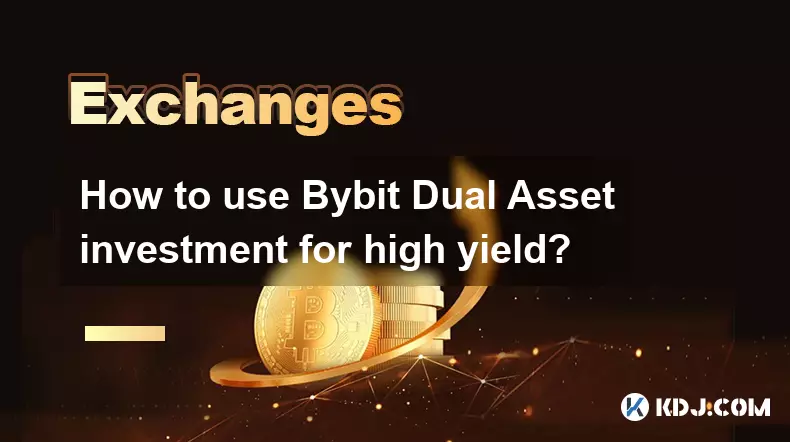-
 bitcoin
bitcoin $87959.907984 USD
1.34% -
 ethereum
ethereum $2920.497338 USD
3.04% -
 tether
tether $0.999775 USD
0.00% -
 xrp
xrp $2.237324 USD
8.12% -
 bnb
bnb $860.243768 USD
0.90% -
 solana
solana $138.089498 USD
5.43% -
 usd-coin
usd-coin $0.999807 USD
0.01% -
 tron
tron $0.272801 USD
-1.53% -
 dogecoin
dogecoin $0.150904 USD
2.96% -
 cardano
cardano $0.421635 USD
1.97% -
 hyperliquid
hyperliquid $32.152445 USD
2.23% -
 bitcoin-cash
bitcoin-cash $533.301069 USD
-1.94% -
 chainlink
chainlink $12.953417 USD
2.68% -
 unus-sed-leo
unus-sed-leo $9.535951 USD
0.73% -
 zcash
zcash $521.483386 USD
-2.87%
How do I sell crypto on Crypto.com?
Selling crypto on Crypto.com involves navigating your portfolio, selecting the asset, choosing a payment method, and confirming the transaction, with fees varying by method and crypto.
Mar 31, 2025 at 09:08 am

Understanding Crypto.com's Selling Process
Selling cryptocurrency on Crypto.com is generally straightforward, but understanding the platform's interface is key. The process involves navigating to your portfolio, selecting the asset you wish to sell, choosing your preferred payment method, and confirming the transaction. However, the specifics depend on whether you're selling for fiat currency (like USD or EUR) or for another cryptocurrency. Fees also vary based on the chosen method and the cryptocurrency being sold.
Selling Crypto for Fiat Currency on Crypto.com
To sell your cryptocurrency for fiat currency on Crypto.com, follow these steps:
- Log in to your Crypto.com account: Ensure you have access to your account and have two-factor authentication enabled for enhanced security.
- Navigate to your portfolio: Find the section displaying your cryptocurrency holdings. This is usually prominently featured on the app's or website's home screen.
- Select the cryptocurrency: Choose the specific cryptocurrency you want to sell from your portfolio.
- Choose 'Sell': Locate the 'Sell' or equivalent button associated with the selected cryptocurrency.
- Specify the amount: Input the amount of cryptocurrency you wish to sell, either by quantity or by selecting a percentage of your holdings.
- Review the details: Crypto.com will display the equivalent fiat value, any applicable fees, and the final amount you will receive. Carefully review this information before proceeding.
- Confirm the sale: Once you're satisfied, confirm the sale. The transaction will then be processed. This may take a few minutes depending on network congestion.
Selling Crypto for Another Cryptocurrency on Crypto.com
Selling one cryptocurrency to acquire another on Crypto.com is similar to selling for fiat, but with a few key differences:
- Log in and navigate to your portfolio: As before, begin by logging in and accessing your portfolio.
- Select the cryptocurrency to sell: Choose the cryptocurrency you wish to trade.
- Select the target cryptocurrency: Specify the cryptocurrency you want to receive in exchange.
- Input the amount: Enter the quantity of the cryptocurrency you're selling.
- Review the exchange rate and fees: Crypto.com will display the exchange rate and any associated fees. These rates fluctuate constantly, so ensure you're comfortable with the terms before confirming.
- Confirm the trade: Once you have reviewed and approved the details, confirm the trade. The transaction will then be executed.
Understanding Fees on Crypto.com
Crypto.com charges fees for both selling cryptocurrency for fiat and trading one cryptocurrency for another. These fees vary depending on several factors, including:
- The cryptocurrency being sold: Different cryptocurrencies have different fee structures.
- The payment method: Selling to a bank account might have different fees than selling to a debit card.
- The trading volume: High-volume traders may qualify for reduced fees.
It's crucial to check the specific fees displayed before confirming any transaction to avoid unexpected charges. Always review the fee structure before initiating a sale.
Security Considerations When Selling on Crypto.com
Security is paramount when dealing with cryptocurrencies. Here are some essential security practices to follow when selling on Crypto.com:
- Enable two-factor authentication (2FA): This adds an extra layer of security to your account, making it significantly harder for unauthorized individuals to access and sell your crypto. This is highly recommended.
- Use a strong password: Choose a complex password that is difficult to guess.
- Be wary of phishing scams: Crypto.com will never ask for your password or private keys via email or text message. Report any suspicious communication immediately.
- Regularly review your account activity: Monitor your transactions to ensure no unauthorized activity has occurred.
Different Payment Methods for Selling Crypto
Crypto.com offers various options for receiving funds after selling your cryptocurrency. These typically include:
- Bank transfer: This is a common method, allowing you to receive funds directly into your bank account. The processing time varies depending on your bank.
- Debit/Credit card: Some users can opt to receive funds directly to their linked debit or credit card. However, this option may have higher fees or processing times.
- Crypto.com Visa Card: If you have a Crypto.com Visa card, you can potentially have the funds loaded directly onto the card.
Troubleshooting Common Issues
Sometimes, issues can arise during the selling process. Here are some common problems and potential solutions:
- Transaction delays: Network congestion can sometimes cause delays. Be patient and check the transaction status on the blockchain explorer for your specific cryptocurrency.
- Insufficient funds: Ensure you have enough funds in your Crypto.com account to cover any fees associated with the sale.
- Account access issues: If you're having trouble accessing your account, contact Crypto.com's customer support for assistance.
Frequently Asked Questions
Q: Are there any limits on how much crypto I can sell at once?A: Yes, Crypto.com may have limits on the amount of cryptocurrency you can sell in a single transaction or within a specific timeframe. These limits vary depending on your verification level and the specific cryptocurrency. Check Crypto.com's terms and conditions for details.
Q: What happens if the price of my crypto drops while I'm selling?A: The price of cryptocurrency is volatile. The price at the time you confirm the sale is the price you will receive. Crypto.com usually executes the sale at the market price at the time of confirmation, not when you initiate the sell order.
Q: How long does it take to receive my funds after selling?A: The time it takes to receive your funds depends on the chosen payment method. Bank transfers can take several business days, while debit/credit card transfers may be faster. Cryptocurrency trades to other cryptocurrencies are usually instantaneous.
Q: What are the fees associated with selling crypto on Crypto.com?A: Crypto.com's fees vary depending on the cryptocurrency, payment method, and trading volume. They are clearly displayed before you confirm the sale. Always check the fees before proceeding.
Q: Is it safe to sell crypto on Crypto.com?A: Crypto.com is a regulated cryptocurrency exchange, but no platform is entirely risk-free. Always practice good security habits, such as enabling 2FA and using strong passwords, to minimize potential risks.
Disclaimer:info@kdj.com
The information provided is not trading advice. kdj.com does not assume any responsibility for any investments made based on the information provided in this article. Cryptocurrencies are highly volatile and it is highly recommended that you invest with caution after thorough research!
If you believe that the content used on this website infringes your copyright, please contact us immediately (info@kdj.com) and we will delete it promptly.
- BlockDAG Holders Hunt for 300% Crypto Bonus as Remittix PayFi Platform Nears Launch
- 2026-02-12 22:10:02
- Congress Grills SEC on Crypto Enforcement: Justin Sun Case, Regulatory Clarity Take Center Stage
- 2026-02-12 22:05:01
- Binance Fortifies $1 Billion SAFU Reserve with Entirely Bitcoin Holdings, Amidst Market Shifts
- 2026-02-12 19:10:01
- Hong Kong's Crypto Pulse: Bullish Sentiment Defies Market Tremors
- 2026-02-12 19:10:01
- Binance Navigates Narrative Collapse and Panic Amidst Market Turmoil
- 2026-02-12 18:50:01
- Blockchain Calendar 2026: Riyadh Summit Dominates High-Value Events, Cardano Expands Interoperability
- 2026-02-12 19:05:01
Related knowledge

How to use Bybit VIP program to reduce trading fees?
Feb 11,2026 at 07:19am
Understanding Bybit VIP Program Structure1. The Bybit VIP program categorizes users into tiers based on their 30-day average net asset value and tradi...

How to buy JasmyCoin (JASMY) on Bybit?
Feb 09,2026 at 03:40am
Creating a Bybit Account1. Navigate to the official Bybit website and click the 'Sign Up' button located in the top-right corner. 2. Enter a valid ema...

How to contact Bybit customer support for urgent help?
Feb 05,2026 at 11:40pm
Accessing Bybit Support via Live Chat1. Log in to your Bybit account using the official website or mobile application. 2. Navigate to the Help Center ...

How to buy Injective (INJ) on Bybit in 2026?
Feb 09,2026 at 05:39pm
Account Registration and Verification Process1. Navigate to the official Bybit website and click the “Sign Up” button located in the top-right corner....

How to use Bybit Dual Asset investment for high yield?
Feb 06,2026 at 12:20am
Understanding Bybit Dual Asset Investment Mechanics1. Dual Asset Investment is a structured product offered by Bybit that combines a stablecoin deposi...

How to buy Celestia (TIA) on Bybit exchange?
Feb 10,2026 at 09:39pm
Creating a Bybit Account1. Visit the official Bybit website and click the “Sign Up” button located at the top right corner of the homepage. Enter a va...

How to use Bybit VIP program to reduce trading fees?
Feb 11,2026 at 07:19am
Understanding Bybit VIP Program Structure1. The Bybit VIP program categorizes users into tiers based on their 30-day average net asset value and tradi...

How to buy JasmyCoin (JASMY) on Bybit?
Feb 09,2026 at 03:40am
Creating a Bybit Account1. Navigate to the official Bybit website and click the 'Sign Up' button located in the top-right corner. 2. Enter a valid ema...

How to contact Bybit customer support for urgent help?
Feb 05,2026 at 11:40pm
Accessing Bybit Support via Live Chat1. Log in to your Bybit account using the official website or mobile application. 2. Navigate to the Help Center ...

How to buy Injective (INJ) on Bybit in 2026?
Feb 09,2026 at 05:39pm
Account Registration and Verification Process1. Navigate to the official Bybit website and click the “Sign Up” button located in the top-right corner....

How to use Bybit Dual Asset investment for high yield?
Feb 06,2026 at 12:20am
Understanding Bybit Dual Asset Investment Mechanics1. Dual Asset Investment is a structured product offered by Bybit that combines a stablecoin deposi...

How to buy Celestia (TIA) on Bybit exchange?
Feb 10,2026 at 09:39pm
Creating a Bybit Account1. Visit the official Bybit website and click the “Sign Up” button located at the top right corner of the homepage. Enter a va...
See all articles










































































